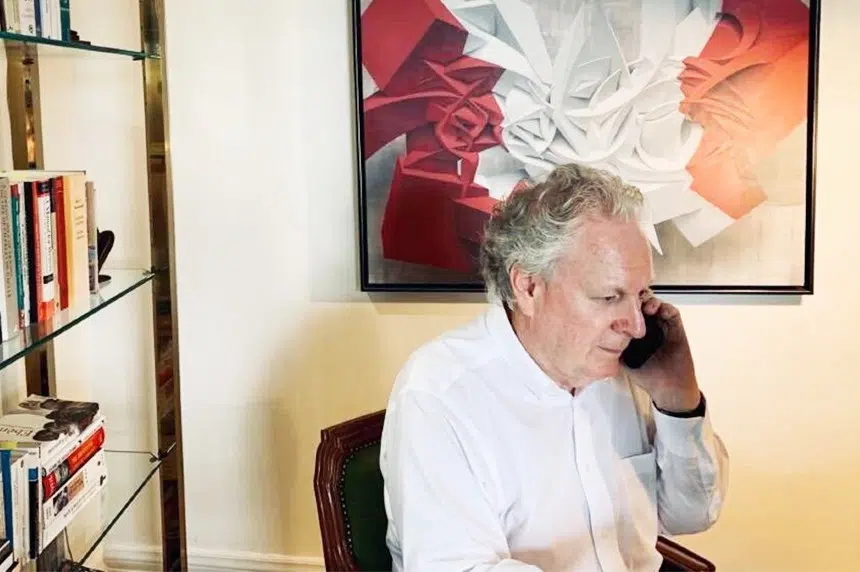The former premier of Quebec and a former leader of the federal Progressive Conservative Party wants to add another job to his resume: Prime minister.
Jean Charest threw his hat into the ring for the ongoing Conservative Party leadership race on March 10.
He joined Gormley for the first time since then to discuss why he made the move, share his beliefs, and defend himself from some common criticism.
A hotly debated topic is where the Conservatives should go on environmental policy, specifically around a carbon tax.
Charest’s main rival, Carleton MP Pierre Poilievre, has taken many shots at him for supporting a price on carbon.
Charest told Gormley the type of policy he would implement if elected would be very different from the Trudeau government’s current policy.
“It’s not at the retail level that it’s ultimately going to be resolved. Look at Alberta. Alberta implemented (a carbon tax) at the industrial level and it worked fairly well … We’ll make sure that, at the retail level, it doesn’t penalize people. It cannot, especially rural Canadians,” he said.
He said he would elaborate further with an exact policy later on in the leadership campaign.
Charest is from Quebec, having the top job in that province from 2003 to 2012. Gormley asked him about the sense of alienation many Western Canadians feel about the east, especially when it comes to oil and gas.
Charest replied he’s a big defender of that industry, along with others that are important in Saskatchewan.
“I’ve always been in favour of the oil and gas industry. I’ve been in favour of pipelines … for a very simple reason. It is that we, as a country, depend on these resources. We’re going to transition (away from oil and gas). We can very well walk and chew gum at the same time,” he said.
“How are we going to build our economy if we’re not able to develop our oil and gas resources, potash, uranium, pipelines, mining? … It’s as simple as that. That includes Western Canada, it includes Quebec, it includes everyone.”
He said one of his big goals is to unite the Conservatives and the country.
“We know from experience this country works if everyone’s at the table. If we’re balkanized the way we are now, we’re weakened and we’re not getting things done. My job as prime minister will be to make this federal system work so that big projects can get done,” Charest said.
He also took the opportunity to take some veiled jabs at Poilievre.
“There’s a lot of people who look at this leadership race and their intuition tells them that there’s more to this than just choosing the leader of the Conservative Party. Either we’re going to go down the path of some American politics or we’re going to have Canadian conservatism,” he said.
“The other thing I hear all the time is … the country wants, in terms of leadership, an adult in the room.”
The polls show that Charest has a lot of ground to cover if he wants to be elected as the Conservatives’ leader in September.
According to the latest Angus Reid Institute poll, which surveyed more than 5,000 people from March 10 to March 15, Poilievre has a firm grip on first place.
About 54 per cent of those voters chose Poilievre as their favourite candidate, while only 15 per cent chose Charest.







